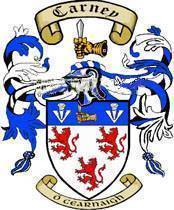| |
|
Carney & Wehofer Family
Genealogy Pages
|
 |
|
 293 - 330 (37 years) 293 - 330 (37 years)
-
| Name |
Flavia Julia Constantia Constantius |
| Born |
293 |
Rome, Italy  |
| Gender |
Female |
| _UID |
7B45D09CA234496BA3C420240D14B9346F76 |
| Died |
330 |
| Person ID |
I26180 |
Carney Wehofer 2024 Genealogy |
| Last Modified |
5 Feb 2012 |
-
| Notes |
- The emperor Constantius (Chlorus) I and his wife Theodora had sixchildren: Flavius Dalmatius, Julius Constantius, Hannibalianus,Constantia, Anastasia, and Eutropia. Constantia's full name was FlaviaJulia Constantia. The date of her birth is not known; even the relativeages of the six siblings are unknown, so that any list is ratherarbitrary in order. If one accepts 293 as the year of her parents'marriage --- that date, however, has been called in question -- then onemay assume that she was born at the very earliest in the following year.Nor is there direct evidence for her place of birth. But a good case canbe made for Trier, since this city served as Constantius' principalresidence during the years 293-306, and here, too, she must have spenther childhood years.
Late in 311 or early in 312, Constantine I, Constantia's half-brother,betrothed her to his fellow-emperor Licinius. She was then eighteen yearsold at most, while Licinius was more than twice her age. The marriagetook place some months later, probably in February of 313, on theoccasion of Constantine's meeting with Licinius in Milan. But therelationship between the two emperors was a strained one, and openhostilities, the bellum Cibalense, erupted in 316. Constantia remained ather husband's side. In about July of 315 she bore him a son namedValerius Licinianus Licinius.
A second war between Constantine and Licinius took place in 324.Licinius. was defeated twice, on July 3 at Adrianople and on September 18at Chrysopolis, and soon thereafter surrendered to Constantine.Constantia interceded with her half- brother for the life of her husband,and Constantine spared Licinius' life, ordering him to reside atThessalonike as a private citizen. A few months later, in the spring of325, Constantine ordered Licinius to be executed, violating an oath whichhe had sworn to Constantia. A year or so later, in 326, the youngerLicinius also fell victim to Constantine's wrath or suspicions.
The loss of both husband and son must have been a severe blow toConstantia and must have strained her relationship to Constantine.Nevertheless she occupied a position of honor and influence atConstantine's court, held the rank of nobilissima femina, and receivedConstantine's loving attention; Constantine was at her side when she diedca, 330, before reaching the age of forty. We do not know when, where, orhow Constantia first embraced Christianity. We do know that Eusebius,bishop of Nicomedia from ca. 317 on, wielded considerable influence atcourt. On one occasion Constantia exchanged letters with the otherEusebius, bishop of Caesarea. Jerome, Rufinus, Socrates, Sozomen, andTheodoret, while not in full agreement on some of the details, all reportthat she was a defender of the person and doctrine of Arius. She alsoattended the Council of Nicaea, where she counseled the representativesof the Arian party.
|
|
|
|